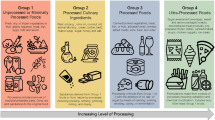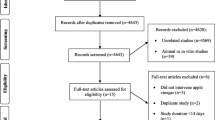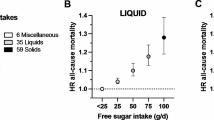Summary.
Background:
The plant carotenoids may contribute to the beneficial health effect of fruits- and vegetables-rich diet. Epidemiological studies consistently associated high plasma carotenoids status with reduced age-related diseases. However, the data concerning the bioavailability of carotenoids in the elderly are scarce.
Objective:
To test whether there is an age effect on carotenoid bioavailability.
Design:
Eight young (20–35 y) and eight older (60–75 y) healthy adults ingested three different meals containing 40 g triacylglycerols (TG) and vegetable sources of carotenoids. These sources were either 188 g carrot purée which provided 30 mg betacarotene as the main carotenoid, or 61 g tomato purée providing 30mg lycopene, or 260 g cooked chopped spinach providing 30 mg lutein. TG and carotenoids were assayed in chylomicrons (CM) collected for 9 h postprandially.
Results:
There was no major effect of age on the postprandial CM/TG response (0–9 h area under the curve (AUC)). There was no major effect of age on the postprandial CM all-trans beta-carotene, cis betacarotene, alpha-carotene, and lutein responses.Adjustment of these responses by the CM TG responses did not reveal any age effect. While there was no significant effect of age on the CM lycopene response, the CM TG-adjusted lycopene response was significantly lower (–40 %) in the older than in the younger subjects (P < 0.04). The cis-trans ratios of CM betacarotene were not significantly different between the old and the young subjects. There was no significant effect of age on the ratio of CM retinyl-palmitate to the sum of alpha-carotene and beta-carotene measured after the carrot meal.
Conclusions:
The bioavailability of lycopene is apparently impaired in the old,while there is no major difference in the bioavailability of beta-carotene, alpha-carotene and probably lutein. There is also no major effect of age on the cis-trans isomerization of beta-carotene during absorption, and in the intestinal conversion of provitamin A carotenoids into vitamin A.
Similar content being viewed by others
Author information
Authors and Affiliations
Corresponding author
Additional information
This study has been carried out with financial support from the Commission of the European Communities, specific RTD program “Quality of Life and Management of Living Resources”, QLK1-CT-1999–00830. It does not necessarily reflect its views and in no way anticipates the Commission’s future policy in this area.
Rights and permissions
About this article
Cite this article
Cardinault, N., Tyssandier, V., Grolier, P. et al. Comparison of the postprandial chylomicron carotenoid responses in young and older subjects. Eur J Nutr 42, 315–323 (2003). https://doi.org/10.1007/s00394-003-0426-2
Received:
Accepted:
Issue Date:
DOI: https://doi.org/10.1007/s00394-003-0426-2




